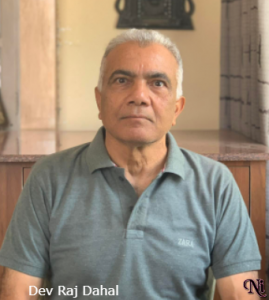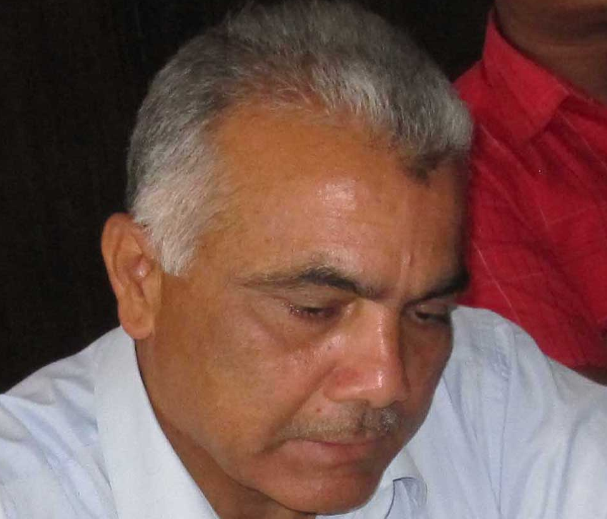Dev Raj Dahal, Kathmandu, Nepal
A community’s supply of social capital increases the scope and level of group interaction within, sustains the generalized trust outside the community, facilitates information flows and reduces transaction cost for peace and justice in everyday life.
“Generalized trust is a key dimension of the political capacities of civil society, which in turn reflect the capacities of individuals and groups to act for common ends as well as to represent their interests to the state” (Warren,1999:12).
A tolerant community inspires its members the habits of cooperation, solidarity and public spiritedness, which, in turn, contribute to the accumulation of social, financial and political capital.
It also allows the articulation of dissenting views of various groups and sub-cultures and let social and political minorities live in peace and security within an overall framework of the state.
Where does the habit of trust, solidarity and cooperation come from? Social capital is a public good, it cannot be personalized and privatized.
It is derived from ascriptive primary institutions, such as families, tradition, religion, culture, social networks, shared historical experience of exchange among various communities, esprit de corps of the society in resolving conflicts and managing the common pool resources that lie outside the state system.
It is also derived from the secondary type of self-organized rational institutions like the civil society, NGOs, markets, political associations and their socially legitimate collective action.
A well-off economy is strongly embedded in society.
It provides institutional incentives for citizens to build relationships that promote confidence and trust among them and those institutions that lie outside the writ of economic division of labor. Many micro enterprises, credit organizations and stable social institutions placed between the state and families frame public demands, monitor the activities of economic societies and foster overlapping benefits across the lines of conflict.
Primarily, political society is an arena of institutionalized competition and conflict for political power, rule and authority while the role of labor-intensive, agro-based, eco- 14 friendly and intermediary micro enterprises is marked by service, voluntarism and class mediation.
A society that has a strong tradition of transparent and accountable associations is likely to have a higher level of coordinated action across communities, which can be used to build confidence in impersonal public institutions and conflict resolution and engage in a higher degree of innovation and risk taking.
Development is about wealth creation without destroying the base of the ecology and economic and social justice.
Today, mounting societal discontent and conflict have increased concerns about the impact of poverty, inequality and denial on social capital and the relationship between social capital and social justice.
An improved citizen and government understanding of their respective rights and responsibilities within civic structures, broad community participation in public decision-making, joint identification of local problems, support for the civil society’s positive role in community improvement, reduction of dependency on external actors and resolution of the structural injustices and conflicts of society can foster a well-functioning pluralistic democracy.
Public Service in Asia Patrimonial and Soft States:
The Asian identity mirrors a rainbow civilization, both with respect to its internal diversity and cultural particularity.
It is, therefore, difficult to weave different sets of identifications of Asians into a common geographical consciousness.
The most common pattern of similarity in Asia is its political culture.
Despite the manifestation of various modes of governance– traditional, democratic, praetorian and totalitarian– cultural attitudes play a cardinal role in human conduct and political institutions have had to adjust themselves to cultural boundaries.
Hindu, Buddhist, Confucian, Islamic and Christian civilizations shape this attitude.
All these civilizations give primacy on group interests over private ideas of individual rights.
Much of “philanthropic giving traces its roots to religious concepts of merit-making, alms-giving and performing charitable acts” (Quebral and Terol, 2002:7). Hindu Vedic scriptures elaborate four different types of human conduct: a) bad conduct hurts others and inflicts anguish and pain to them; b) normal conduct is meant to regulate personal and family lives without hurting others; c) virtuous conduct is designed to help others by means of promoting voluntary services, such as establishing resting places, inns, schools, hospitals, digging well, constructing water spouts, and uplifting the poor and powerless sections of society; and d) supreme conduct is attained by performing Yagna, protecting the earth, heavens and the cosmos for tranquility and peace.
Several reformist movements of various sects of Hindus have defended the cause of voluntarism and donation to charity works.
It is socially obligatory for the adherents of Islam to donate 2.5 percent of their net earning each year to religious and social organizations, which is distributed, to the needy citizens.
They call this practice Zakat (alms). “In practice Muslim polities are pervaded by clientelism.
There is government-by-network.
The formal institutional arrangements matter far less than do the informal connections of mutual trust based on past personal services, on exchange of protection from above for support from below” (Gellner, 1994:26). Buddhism helps stop the root of violence within every individual through self-abnegation so that better relationships with family, neighbors, community and nation-state can be built.
Peace building in society requires developing compassion within self and giving support to the needy thamtaan. In both Hindu-Buddhist traditions, property obliges the citizens to perform deeper goals of paropakar, charity work and social service (Yadma and Messerschmidt, 2005: 2).
Confucian thought like Hindu culture confers respect to authority, morality, unity and a sense of duty to serve citizens within the familial, social and political institutions.
The highest ethical standard of Confucian tenet is jen which means affective concern for the well-being of humanity. Confucianism, like Buddhism, is pacifist and attaches importance to the notion of datong, implying that the whole world is a big family.
It is akin to the ancient wisdom of Hindus—Basudaiba Kuttumbakam—the brotherhood of humanity.
The current Chinese society is assuming that Confucianism should fill its religious and ideological void and compete against Western individualism, consumerism and pop culture as well as create a harmonious society.
China has unleashed the Sinicization of the world as a response to a one-sided Westernization of China.
The base of harmony in state-civil society relations is precisely the familial and lineage values of interdependence which has restricted the autonomous self-organization of civil society.
In Singapore, Malaysia, South Korea and Japan, “officialdom monopolizes the public realm while the citizens, the masses, are permitted the pursuit of private gain, personal welfare, and individual happiness insofar as these things lie within the legal and political frameworks dictated by the government” (Makoto, 1999:51).
The Christian practice of philanthropy is more institutionalized as every devout Christian is obliged to give 10 percent of his or her income to the Church (Quebral and Terol, 2002:22) which is spent on public welfare.
The Confucian doctrine and the family-oriented Hindu-Buddhist values also oblige people to help relatives in crisis times.
Asian businesspersons appreciate the values of these religious traditions and undertake corporate social responsibilities by establishing trusts, charity organizations and foundations to sponsor relief projects and social development programs.
The birth of various non-profit associations in Asia has contributed to the development of specific laws, regulations and several codes of conduct to govern philanthropy, non-profit making NGOs, foundations, and civil society organizations (Sidel and Zaman, 2004) to fulfill diverse needs of citizens and strengthen civil society’s engagement in social responsibility and social initiatives.
Despite the persistence of high 15 religions embedded within the institutions often lending legitimacy to state authority and in the religious practices of everyday life of citizens, even in the modernizing countries like Singapore, Thailand and Malaysia fast-track capitalism is pervading every sphere of public and private life and rapidly individualizing citizens.
This is wearing away the power of society to effect public action.
Throughout “Asia exchange bonds determine power, status, authority relations, and the citizen’s role in society.
These exchanges constitute rewards and values, which one person provides for another in exchange for like benefits” (Neher, 1994:950).
As a result, even in modern nation-states leaders arbitrate the application of rules so that interpersonal relations can run easily, unhindered by laws and constitution.
This has made the growth of strong institutions problematic.
Those who occupy the state institutions and served by them remain satisfied with weak institutions and fear the depersonalized laws, processes and institutions.
And when leaders fail to perform institutional duties citizens replace the personalities rather than transforming the rules of the game, institutions and institutional processes.
It is the strength of personal and professional ties that enable the accumulation of social capital, trust and moderation of conflict.
End text.
Part fifth in a few days: Ed.
Our contact email address is: editor.telegraphnepal@gmail.com

